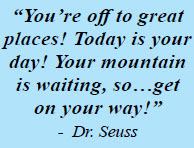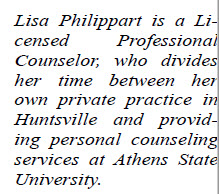 By: Lisa Philippart
By: Lisa Philippart
For those heading back to school, young and old, chances are you’ve already made your checklists. Schedule? Check. Supplies? Check. Organized? Check. But there’s something likely missing from your list, and it might be the most important thing you take care of all year: addressing your mental health and wellbeing. Going back to school can be exciting, full of opportunities and challenges. But it can also be terrifying, particularly if you have already experienced bullying, anxiety, stress, depression, or trauma. At every level from elementary school to college, students today are grappling with intense experiences. If you are feeling a whirlwind of back-to-school emotions, there are effective ways to respond. Here are five suggestions for navigating through the challenging back-to-school labyrinth, especially for those who struggle with a mental illness:

1. Change may be a trigger, so learn to gauge the problem. Any new pattern or life event can bring about the first episode of a mental health issue, or cause an increase in anxiety or nervousness. If you feel prolonged sadness or worry about school, pay attention to important physical signs, such as stomachaches or headaches, difficulty sleeping, tight muscles or cramping, or dizziness. If you want an outside assessment of your feelings, and may not feel comfortable talking to a friend or family member, you can go to Mental Health America’s free and anonymous screening tool at:
https://screening.mentalhealthamerica.net/screening-tools. The key here is to find a healthy way to deal with the change, such as talking to someone you trust or a mental health professional, writing about your emotions, exercising, or joining a club or support group.
2. Get plenty of sleep! (This really applies to any age!) If you are under the age of 25, your brain has not fully matured yet. For elementary age students, at least 9 hours of sleep is recommended. High school students need about 8 hours of sleep per night. And for college students, getting at least 6 hours of sleep helps the brain continue to develop, allows you to retain more information, and provides better overall physical health. Pulling all-nighters is never more effective than getting a good night’s sleep.

3. Identify your coping skills. You may have already put together a list of coping skills because you know that returning to school can trigger emotional and mental distress. It is important to ask yourself these types of questions: What worked before to help me feel better? What do I know does not help? What can I avoid? The answers to these questions can prepare you for the moments when stress and anxiety strike. The time is now to develop healthy ways to cope with life’s challenges. For suggestions on learning new skills to better manage your emotions, go to the Mental Health America’s toolkit at:
https://www.mentalhealthamerica.net/back-school

4. Get educated on and about the internet. The internet is crammed full of mental health resources and educational materials. I have already mentioned the Mental Health America website for valuable and accurate information. Getting educated about mental health, illness, and symptoms is a way to empower yourself. While the internet can connect you to vital information and support, it can just as easily make you feel miserable. For example, posting on a social media platform can bring you support from friends as well as attacks from strangers. If you are on sites that are not healthy for you, you need to step away and stay away until you are in a better place emotionally.
5. Allow yourself to make mistakes. Many students feel pressure to never mess up, or that failure “is not an option.” However, these experiences are a part of this world and can help you to develop important life skills. As you go through the process of learning about yourself and your environment, mistakes will happen. Positive mental health is achievable through learning from past slipups, which allows you to move forward in a healthier way…establishing new patterns to better handle those situations that will pop up again. In other words, you learn to prepare alternative possibilities. Think to yourself, if this happens, what else can I do? Failure is one option, but not the only option. I wish you a mentally healthy school year!
By: Lisa Philippart
Licensed professional Counselor


